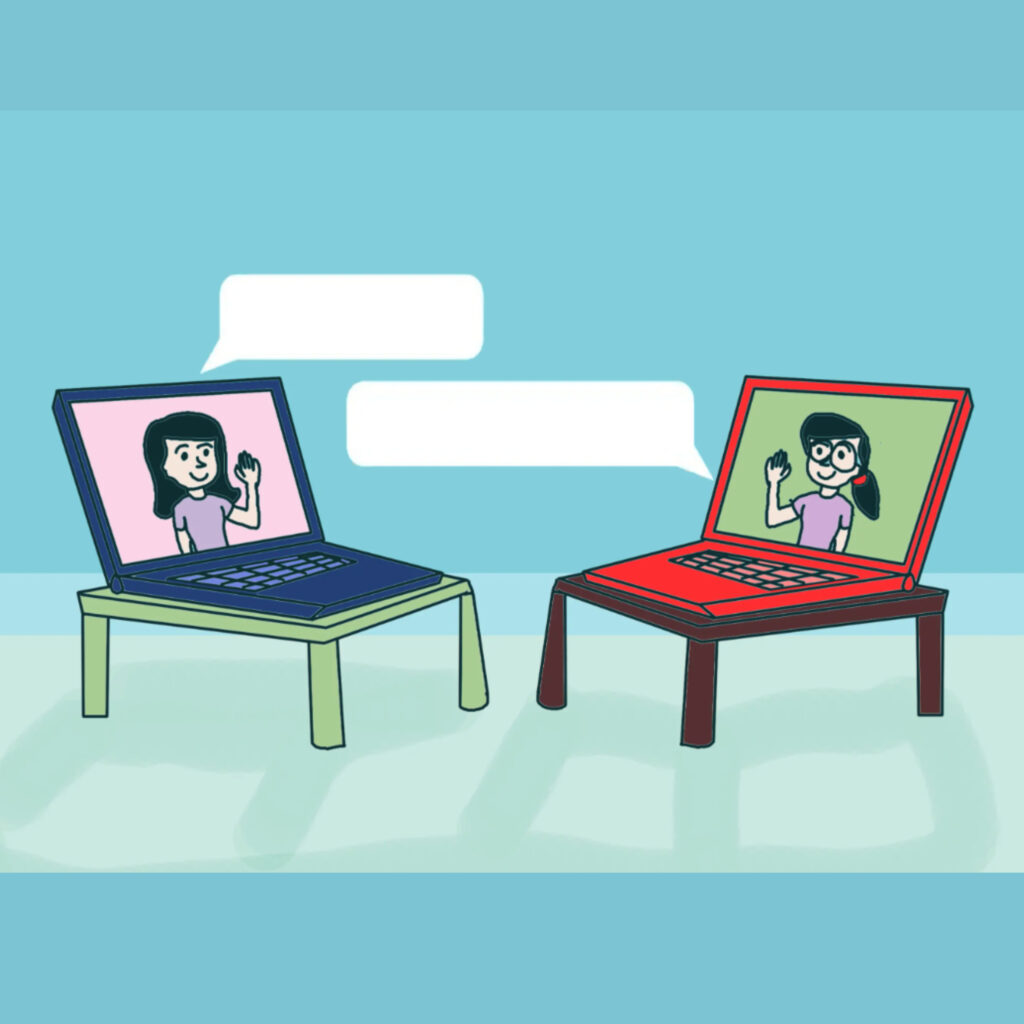Does your child need a safe space to practice conversation and using social norms?
Appropriate social and conversations skills give children with Down syndrome the best chance to be socially included as well promote the development of genuine friendships. Research has shown that improvements in early communication skills correlate to later language and social competence in children with Down syndrome, suggesting it is important to emphasize improving communication skills in children with Down syndrome in early childhood.(1)
While social norms and basic conversation skills are intuitive for many kids, they may not be for all kids. Our peer volunteers are happy to engage weekly with your child in chatting and other online activities where they will have the opportunity to just hang out and chat. When children are better communicators, not only does this promote inclusion, it also can can lead to increased self esteem and self-advocacy as well as success in school as kids today are increasingly asked to work collaboratively, including on group projects. In addition, research suggests having certain developmental disabilities such as Down syndrome may put adolescents at risk for peer victimization, but having relatively good language and communication skills may be a protective factor.(2)
Inspired to Learn has created guidelines for the peer volunteers who engage in social/conversation skills practice to encourage use of social norms (greeting, how are you, reciprocal, on-topic conversation, etc.). They are encouraged to ask open ended questions as well as elicit questions from the self advocate to model conversation as well as staying on topic. Our peer volunteers are kind and patient and volunteer because they want to make a difference.
(1) Sigman, M., Ruskin, E., Arbeile, S., & Corona, R., Continuity and change in the social competence of children with autism, Down syndrome, and developmental delays. Monogr. Soc. Res. Child Dev. 1999, 64(1):1-114. doi: 10.1111/1540-5834.00002. PMID: 10412222.
